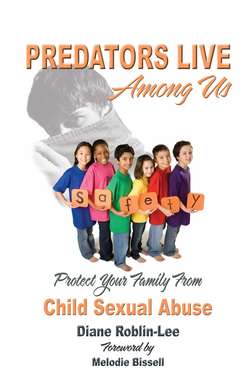Читать книгу Predators Live Among us - Diane Roblin Lee - Страница 23
На сайте Литреса книга снята с продажи.
Why do they do it???
ОглавлениеMy interview with Matt left me shaking my head. Why, for goodness sake, would a fully grown, married man want to manipulate a child into sexual interaction? It makes no sense. Even if we figure it out with a gazillion studies, it doesn’t erase the gut-wrenching consequences of their actions.
However, perhaps by trying to understand, some child, somewhere, will be protected.
While healthy humans are born with the propensity to engage in sexual activity, they’re not born to be pedophiles or child molesters. Those desires are developed as a result of early experiences or interruptions in normal development.
Everyone needs to be touched and loved and paid attention to. As individuals mature, sexual satisfaction is added to the list of needs. During puberty, boys suddenly become totally preoccupied with sex. Their sex hormones increase five-fold within a two year period. Whatever sexual messages are delivered to them during that period are naturally going to have great significance. If they have normal interactions with females during that time, they are more likely to develop as heterosexuals. On the other hand, if they are socially awkward and experience sexual arousal with the same sex or with someone considerably younger, it will be remembered as pleasurable and they may begin to seek out that source of arousal again and again, rather than changing the brain cues and seeking satisfaction from the normal, healthy source.
Of course the motivations are different with each person and they change over time. They are as varied as individual childhoods and early experiences. A rapist or a sadist, for example, is going to differ in motivations from a man who touches the genitals of a single child.
Sometimes, the motivation has nothing to do with sex. For a sadistic rapist, it may be all about hostility and cruelty. For a gentle molester, it may be all about control or power imbalance, perhaps as a reinforcement of his “ownership” of the child. Or it could be enjoyment of the respect for authority he gets from children, but seldom from his peers.
Jocelyn, the sad-eyed, once-pretty mother of three sons, sat with me one rainy afternoon and recounted her heart breaking experience. With too many lines etched in her face, she told me about her precious middle son who had been molested by a close family friend.
My son’s molester claimed that his father molested him, so it felt natural. He said he was just “teaching (my son) about sex.” When I heard those words, I was enraged - enraged! How dare he rob my son of the carefree innocence of childhood! How dare he rob me of my parental privilege and responsibility before my son was old enough to know about such things! How dare he masquerade helpfulness for selfishness! How dare he impose himself on my son as the first experience with sex! How dare he dupe me into believing that his home was the safest place in the world for my little boy to be? How dare he express his darkest, most vile imaginings on my sweet child? How dare he carry on a relationship with my family for years, hiding this terrible secret? How dare he subject my son to the lifelong challenges of a molested child? How dare he pretend to be such a fine, upstanding, charming member of society?
She paused and then continued.
I never thought I would be able to smile again. My child’s molester seemed to think it was just fine to use whoever was accessible to involve in his sex life. And yet he knew it was wrong because he kept it hidden. He seemed to have no concept of respect for boundaries.
A study by Briggs and Hawkins 27 found that sex abusers who were abused themselves as children often regarded their own abuse as “normal,” sometimes even enjoyable. In contrast, the non-offenders they studied who had also been abused as children, were more likely to report their own abuse as negative. Thus the study speculated that men who normalized their own experience of sexual abuse may be more likely to become abusers themselves and then fail to understand the harm they have caused.
Whatever the reasons for the criminal behavior, we can only try to get a handle on the “why,” so that if we catch a glimpse of someone developing this kind of mind set, we can try to divert their course for the protection of some unknown child sometime, somewhere.
